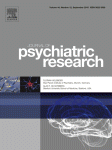 In a case of refreshing transparency, a journal has published a detailed list of corrections it requested from authors of a paper on the costs of climate change, even though the authors declined to make most of them.
In a case of refreshing transparency, a journal has published a detailed list of corrections it requested from authors of a paper on the costs of climate change, even though the authors declined to make most of them.
Earlier this year, the journal Ecological Economics published a paper that cast some doubt on the FUND model, which, as the article explains:
The FUND model of climate economics, developed by Richard Tol and David Anthoff, is widely used, both in research and in the development of policy proposals. It was one of three models used by the U.S. government’s Interagency Working Group on the Social Cost of Carbon in 2009 (Interagency Working Group on Social Cost of Carbon, 2010). The Working Group’s “central estimate” 1 of the social cost of carbon (SCC), i.e. the monetary value of the incremental damages from greenhouse gas emissions, was $21 per ton of CO2.
The paper concluded: Continue reading Noteworthy: Journal posts all the corrections it wanted in a climate change paper after authors refuse most
 The journal Digestion has a retraction notice that’s, well, an amusing morsel.
The journal Digestion has a retraction notice that’s, well, an amusing morsel.







